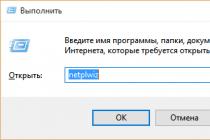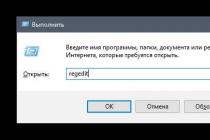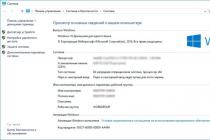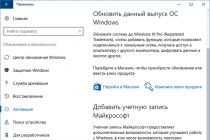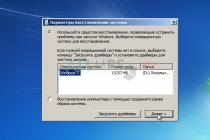Internet being mirror image real life, includes both positive and negative aspects of it. In the fight against negative situations, there is a growing need to adhere to certain "rules of conduct" that make network communications convenient and safe. The rules of conduct and rules of good manners for netizens are often referred to as "netiquette" or "setiquette".
The rules of "netiquette" are based on 10 principles:
Remember that you are talking to a person.
Defend your point of view, but do not offend others. Do not do to others what you do not want to receive from them yourself. When you are conducting a conversation - by email or at a conference - it can be very easy to misinterpret the words of your interlocutor. However, do not forget about the main principle of netiquette: there are real people everywhere on the web.
Adhere to the same standards of behavior as in real life.
People sometimes forget that there is a living person “behind the screen” and think that the rules of behavior on the Internet are not as strict as in ordinary life. Standards of behavior may differ at different points in the virtual space, however, they are no softer than in real life.
Remember where you are in cyberspace.
What is accepted without hesitation in one place may be considered rude in another. Once in a new area of virtual space, take a look around first. Take time to explore your surroundings - listen to how and what people are talking about. Then join the conversation.
Respect the time and opportunities of others.
When you send email or send a message to a conference, you are actually claiming someone's time.
The concept of "capabilities" includes the bandwidth of the channel through which the communication takes place and the physical capacity of the storage media on the remote computer.
Before you send your letter, consider if the recipients really need it. If you answer yourself "no", it is best not to waste their (and your) time.
Save your face.
On the web, you will be judged by how you write. So the rules of grammar play important role... Be aware of what you are saying. Reflect on the content of your letter. Inaccurate information can cause a flurry of emotions on the Web.
Make sure your messages are clear and logical. You can write a paragraph of text that is perfect in terms of grammar, but completely meaningless.
Don't insult users, be patient and polite. Do not use profanity, do not go into conflict for the sake of the conflict itself.
Help others where you can.
The Internet itself grew out of the desire of scientists to share experiences. Gradually, others were drawn into this fascinating process.
If you have discovered or yourself have composed a document that may be of interest to others, send it to the conference. Sharing experiences is an exciting experience. This is an ancient and glorious tradition of the Web.
Do not get involved in conflicts and do not allow them.
Does netiquette prohibit flames? Not really.
Flames [Flames are emotional remarks, often messages where tact is not the most important thing, but the goal is to provoke a reaction from users. Flame is "an argument for the sake of an argument"] is also an old tradition on the Web. Flames can be fun for both writers and readers.
But netiquette against flames that escalate into wars - a series of malicious messages exchanged, as a rule, by two or three participants in the discussion. Such wars can literally take over the conference and destroy the friendly atmosphere.
Respect the right to private correspondence.
Don't abuse your capabilities.
Some people in the virtual space feel like professionals. With more knowledge or more authority, these people automatically gain an advantage. However, this does not mean that they can use it.
Learn to forgive others for their mistakes.
When someone makes a mistake - be it a typo in a word, a careless flame, a stupid question, or an unreasonably long answer - be lenient. Just because you have good manners does not mean that you are licensed to teach those manners to everyone else.
If you decide to draw the user's attention to his mistake, do it correctly and better in a private letter.
Chatting etiquette
:) or :-) - smile, joy;
: (or: - (- sadness, sadness;
: "(- tears, crying;
: -o - surprise;
;-) - wink.
The obligatory elements of behavior in the chat are greeting the interlocutors when entering and saying goodbye when leaving.
A feature of the chat is the limited length of messages.
When exchanging text messages, we do not hear the live intonations of our interlocutor. Therefore, sometimes we resort to using "emoticons". The most common ones are:
Remember that too many emoticons make the text difficult to read. To indicate your emotions, it is enough to put 1 - 2 emoticons, but no more.
Formulate questions clearly, unambiguously. Questions should be formulated in such a way that the answer can be formulated briefly.
You should not pay attention to vicious attacks.
Observe etiquette and respect the rights of the interlocutor. Answer only the question asked... If the question is not clear, please specify.
Before answering - think about the question, because the main thing is not speed, but the content of the answer.
Ignore Flames [Flames are emotional remarks often made without considering the opinions of others in the conversation].
Based on materials from the site "Etiquette from A to Z"
(English version).
The rules of etiquette are not universal and rigidly established - in different communities they can vary significantly. Since the main purpose of etiquette is not to impede communication in the community, the rules can be established based on the goals of the community, the accepted communication style, technical restrictions, etc. Some rules are written down, and even formalized in the form of a formal charter, and sometimes and just in the form of a list, other rules are not written down anywhere, but are known to most members of the community and are strictly enforced.
Most often, a clear violation of etiquette is understood as insults and personalization, malicious departure from the topic (offtopic), advertising and self-promotion in places that are not intended for this. It is also likely that libel and other malicious misinformation (deception) or plagiarism may be a violation of etiquette.
- Psychological, emotional - to contact you or you, whether to use emoticons and in what quantity, whether to indicate the area code in the phones, support newcomers or ignore their questions, or send them directly to the FAQ and Search ...
- Technical, design - the use of strings of a certain length, the use of transliteration, restrictions on the size of a message or signature, the admissibility of extended formatting (bold, italic, color, background, frames, etc.), the admissibility of writing messages in UPPERCASE ...
- Administrative - rules for naming topics (titles), citation rules, admissibility of advertising, admissibility of a flame, actually the need to adhere to the topic of the community ...
People accustomed to the rules of one online community may unwittingly break the rules of another. Therefore, almost all Internet communities require you to familiarize yourself with the rules and express your formal consent to comply with them.
Good tone
The rules below are of course not binding on all communities. In some cases, their implementation is impossible, or even undesirable, but such cases are usually rare.
Studying traditions
Before becoming an active member of the online community, it is advisable to visit it for a certain time, leaving a minimum of your own comments in order to get used to the rules of the community, as well as learn about some of its traditions. The exception is resources that do not imply long-term participation in their life, or are built according to the "question-answer" scheme. As an alternative, some use encyclopedias like Lurkomorya, but the information posted in such sources is not always reliable: they may be outdated, incomplete, biased or require interpretation - they can only serve as a supplement, but not a substitute for self-assimilation of community rules.
Search
Before asking a question, do not be too lazy to use the search - maybe this question has already been asked and answered. The response to an appropriate raising of an old topic is usually supportive, while reopening the topic at first is usually discouraged.
Message design
Try to make your notes readable. For example, you should not write in transliteration or replace letters with similar characters. Naturally, if a recording is difficult to read, it is likely to be either ignored or reacted negatively to. Failure to comply with language norms also often leads to prejudice. You should also not type whole words in capital letters (all the more so - alternate case), as well as put a large number of punctuation marks and emoticons in a row.
Hiding part of a message
Most often, the message trimming function (the so-called "cat", from the English. cut- crop) is used in blogs, where posts, which can be quite long, are lined up in one row on home page, and only summary theme, which can be seen in full if you follow the link. It is also advisable to hide large files, for example, images that can load for a long time (of course, the file should be loaded only after the visitor expresses a desire to see it), as well as content that some visitors would not want to see on the page (for example - spoilers revealing the plot of the artwork).
Mauvais ton
As well as good practice, the situations listed below are not considered unacceptable in all communities. There are resources for which lower-level phenomena are in the order of things, or even resources created for them. But if there is no explicit permission for such behavior, it is better to refrain from it.
Attracting attention to yourself
Many communities discourage writing messages with the sole purpose of drawing attention to yourself. A common mistake for beginners is to write a "greeting" immediately after registration, which has no semantic meaning. A large number of such messages contribute to the development of the flame. Another example is the so-called "bump" or "up" - posts for raising a topic in forums or imageboards, where they are often sorted by the date of the last post. And if on image boards this is sometimes the only means of dealing with wipe (a kind of flood, due to which topics are lost in the stream of meaningless topics), then on forums such messages are often an attempt to draw attention to a topic that is not interesting to other participants, and therefore restrictions are often imposed to raise the topic up to a complete ban.
Flame
Offtopic
Offtopic(otherwise offtopic, offtopic or simply off; from English off topic, letters. "Off topic", in the English-speaking Internet the phrase off topic sometimes abbreviated as OT.) - network message going out of scope in advance installed theme communication. For example, the entry on the web forum, not corresponding either to the general direction of the forum, or to the topic in which the entry was left.
Sometimes in network communication, the antonym of the word offtopic is used - ontopic, ontop meaning to follow a predetermined theme.
Even before the spread of Internet forums, the concept of offtopic was widely used in echo conferences of the fidonet network. Also, as a rule, off topic in mailing lists and Usenet newsgroups is inadmissible.
Offtopic is viewed as a violation of netiquette, since it erodes the previously announced restriction on the topic of communication, which makes it difficult for users of the forum to find information, and turns it into an information dump. As a rule, for compliance network ethics forums and other similar online communities are monitored by moderators.
The creation of a new topic ("topic") of a forum in an inappropriate subsection may also be considered offtopic in forums. Sometimes in forums, special sections "for flooding and offtopic" are introduced to discuss issues not related to the topic of the forum and just for fun.
From the point of view of sociology
Although offtopic, along with meaningless messages (see flood) contributes to the clogging up of a forum or other platform for Internet communication, however, the head of the laboratory at ISEP RAS, Doctor of Philosophy Valery Valentinovich Patsiorkovsky sees positive side offtopic in the community is that it gives the forum user the opportunity to discharge "by sending a message, perhaps far from the interests of the community, but important at the moment for him personally."
In turn, Peter Collock (eng. Peter Kollock) and Mark Smith (eng. Marc smith) from the University of California, consider the need to follow a given topic when communicating on the Internet within a large group in terms of a social dilemma, like the prisoner's dilemma - each individual wins by acting selfishly, but if everyone chooses an egoistic alternative, that is, engages in offtopic, he loses the whole group - meaningful communication in the Internet group will become impossible.
Hotlinking
Notes (edit)
Links
- RFC 1855
- O. A. Lavrov Outline of rules for participants in electronic communications // Educational Technology & Society... - 2005. - V. 8 (1). - S. 183-190. - ISSN 1436-4522.
People have followed the rules of etiquette long before the advent of computers. The norms of behavior help to adequately represent your person and opinion, conduct a conversation in the form of a polite dialogue, respect other people's understanding of the topic and maintain a healthy "microclimate" in communication.
Some people think that with the advent of computer technology and network communication, you can forget about the norms of ethical behavior only because on the other side of the screen there are strangers with whom you will not have to meet. This position is unacceptable, because etiquette does not complicate life, but makes it easier. Therefore, the network has developed certain rules that polite people must follow.

Communication should be free of emotions
You can't give in to every minute emotions. When communicating with a stranger, one should remember that he is real, but does not see or hear the opponent, but only reads the text. It is better to write clear statements without provocation and hatred, otherwise you can provoke anger in response and spoil your mood for a long time.
It should be remembered that each word is fixed and does not disappear anywhere; it can significantly harm both the other person and you.


It is better to discuss any topic politely, try to understand the interlocutor and calmly convey your position.
Online and Real Life Standards
In the real world, absolute freedom of behavior is not allowed, people are afraid of condemnation of others, or punishment for misconduct. It is not easy to catch an intruder on the Internet. But this does not relieve him of moral responsibility. It must be remembered that there is a living person on the other side of the screen, and it is necessary to communicate with him in the same way as with people in a real society. If you have problems with etiquette, you should think about how you would act in ordinary life, looking into the eyes of your interlocutor.

Behavioral norms in thematic groups
When using the Internet for group communication, you should remember what kind of group you are in. It is normal to use rumors and gossip in a TV conference, and it is not permissible to invade the scientific environment with them. Once in a new thematic group, you should look around, delve into what is happening, and only then enter into a discussion.

Priceless time
When communicating in cyberspace, it is necessary to understand the value of time for each of us. Don't send thoughtless messages to email or conferences. The sending process takes time, the bandwidth of the channel is limited.


You should think about whether this message is necessary, if there is an opportunity to abstain, it is better to do so.
Personality assessment
You can communicate online without introducing yourself. Nobody knows what the interlocutor looks like, the personality is assessed according to the texts presented. You should write competently, do not gossip, messages should be important and weighty, facts - only verified.
Helping people
There are answers to many questions on the Internet. If someone has asked a question you know the answer to, you definitely need to help the person. Help is a noble cause. When asking a question, you can exchange replicas by e-mail, then collect them, summarize and send a general message to the conference. The information will be useful to other users.

Private correspondence
It is unethical to invade private correspondence, read or write for others. In no case should you forward someone else's correspondence to other people.


Ability to forgive
The web is overflowing with messages from both literate and poorly educated people of different ages and a different sense of the world. You should be tolerant and forgive people for stupid questions, long answers and even a complete lack of logic in judgments. You need to answer only with the aim of helping, and not condemning.

Delicate humor
Not knowing the interlocutor, you should carefully introduce humor or irony into the messages. In developing relationships, it is better to delicately touch on popular topics in order to find out the circle of interests of the opponent.

Flood or attention grabbing
Flood - meaningless messages, for example: “Cool! "," Tin! ". Some people need them to get attention. It only seems harmless, but in fact, flooders, with their stream of unethical statements, are capable of disrupting the conference.
Flames. Conflict provocation
Emotional responses, regardless of the opinions of other participants in the communication, are called flames. They provoke the interlocutor, they can bring animation to the conversation, but if they cross a certain line, a conflict arises. Misunderstandings and mutual insults begin.

As a rule, several interlocutors participate in such a communication environment, but they are the ones who destroy the peace process of the conference.
The flame is similar to a flood, only it is more aggressive.
Offtopic. Topic presence
The term means - going beyond the scope of the topic. If a certain topic is present in the conference, you should not contradict it with pointless messages. This behavior violates ethical norms and can be stopped by moderators.

Trolling. Provocative messages
People who do this hardly think about etiquette. Cynical, rude, provocative messages are thrown in in order to embroil the participants in the conversation and destroy the communication. By annoying society, trolls take pleasure in their own worth. Do not indulge them and enter into such a discussion.


Smilies. How to use
Hilarious images for texting are emotional. Sites often provide their own samples, but you need to use them in moderation. The overload of emoticons in messages can distract from the content of the conversation.

Literacy
You should reread your messages before sending them. The letter is easy to read without errors. There are enough programs on the Internet that can help with this. A competent text is a sign of respect for the interlocutor.

It is not so easy to write a competent letter so that the interlocutor has a desire to answer it. There are basic concepts of code of conduct when communicating by e-mail:
- First, you should introduce yourself, provide your general information. This is enough to start a correspondence. Anonymous copyists are treated with caution, often without reading, they send their messages to spam.
- It is better to indicate the subject of the letter, to concisely highlight the main thing in order to attract attention.
- It is necessary to think carefully about the content of the text, remove errors and unnecessary phrases. You should break the letter into meaningful paragraphs to make it easier to read. You should not send a message in a large volume, since it can be inconvenient to read it, it is better to use capacious and accurate information.


- In personal communication, a conversational style is allowed.
- During active correspondence, you can save the original text and several thematically understandable letters.
- At the end of the text, there is a laconic signature, which consists of a name and contact information. The scribe must know who he is communicating with and how this person can be contacted.
- You can not redirect someone else's message without the consent of the author.
Now no one perceives the Internet as something special, it has firmly entered our daily life. This means that communication in this space is becoming more and more informal. This is also facilitated by the expansion of the format of Internet communication: various forums, social networks, and instant messaging programs have appeared. However, do not forget about netiquette and security measures, even with the most confidential correspondence.
Rules of etiquette when working with a computer network
Netiquette (also called netiket or setiket) is a set of rules that regulates communication during Internet correspondence and makes it easier for interlocutors to understand each other. Of course, such rules are not strict, but their observance helps to maintain mutual respect in communication, and also leads the conversation in a constructive way. After all, even sitting in front of a computer screen, one should not forget that on the other side of it there is the same person with his convictions, principles and outlook on life. Therefore, respect for whoever you communicate with becomes the main and fundamental rule of netiquette.
Networking and network etiquette involve each participant in a discussion or forum discussion personally contributing to the development of the conversation by giving his or her point of view on the subject of discussion. Therefore, before sending this or that message, it is always worth weighing its importance and considering: "Is it necessary for the development of the discussion?" If the message is not informative, then it is better not to clutter up the conversation with unnecessary remarks. It is also worth considering the relevance of this or that information. For example, on a forum dedicated to a television program, it would be quite appropriate to discuss the presenter, his personal qualities, and appearance. And such messages will look completely inappropriate when talking about a scientist leading a scientific conference.
Speech etiquette on the Internet is also important. Try to ensure that your messages are composed correctly, without the use of vernacular, and even more so swear words. If by the rules of etiquette when communicating, it is allowed to use emoticons denoting emotions when you are closely acquainted with the interlocutor, then these icons are unacceptable in business correspondence. It is considered not polite to write the entire text in capital letters, since in the Internet space this is perceived as a conversation in a raised tone. Rules of etiquette in messages Email instruct to fill in the subject of the letter so that the interlocutor can easily navigate and find him among others. It is also necessary to archive all large files sent by e-mail, and be sure to start your letter with a greeting.
Security rules for correspondence
The Internet is a fairly open structure, and not every user of it can use the information in it for useful things. There are a lot of fraudsters who want to steal personal data or cash from accounts ordinary users... Therefore, when texting on the network, in no case send passwords from your mailboxes or pages to anyone, and also do not mention personal data related to your financial affairs: card account numbers, PIN codes from them. Do not follow unverified links that come to you from unknown addresses.  Thoroughly filter emails and immediately send suspicious ones to the "Spam" folder. Do not open files received by e-mail without first checking them with an antivirus. Do not send executable files yourself (they have extensions .exe, .dot, .com). If you need to send them to someone - zip the file, and in the cover letter mark why you are sending this file... It is worth carefully treating letters from friends with requests to borrow money, top up the mobile balance. Before doing this, try to contact the applicant offline and find out if the request really comes from him. Perhaps his page or mailbox hacked by scammers.
Thoroughly filter emails and immediately send suspicious ones to the "Spam" folder. Do not open files received by e-mail without first checking them with an antivirus. Do not send executable files yourself (they have extensions .exe, .dot, .com). If you need to send them to someone - zip the file, and in the cover letter mark why you are sending this file... It is worth carefully treating letters from friends with requests to borrow money, top up the mobile balance. Before doing this, try to contact the applicant offline and find out if the request really comes from him. Perhaps his page or mailbox hacked by scammers.
“And passions are raging through the networks,
And a friend brings a friend into black ...
And to avoid misfortune
Once a man decided:
It is desirable and even necessary
To appear in internet
Well, at least some kind of etiquette ... "
(Leonid Ivonin. "Netiquette by A. Pushkin")
Over the past 10-15 years, the life of Russians has changed dramatically: communication, history of relationships, connections - everything is stored in the "clouds" and in small personal devices.
Few of our contemporaries can imagine at least a day without phones, laptops, tablets. And even less - without the Internet. The World Wide Web has swallowed everyone's life: acquaintances, relationships, finances, studies, work - everything is entangled in the world wide web. Checking mail, messages in social networks, reading news, publishing photos or posts - this is what the life of most Russians is filled with.
The solution to many organizational issues depends on information technologies: from enrolling children in kindergarten through the portal "Gosuslugi.rf" to checking a child's diary on special sites, from organizing the educational process at the university to monitoring pension accrual ... requires compliance with the rules of interconnection and interaction in it. Hence - such a great interest in netiquette or network.
What is Setiket
On request for netiquette search system finds about 22 thousand answers. The first source - "Wikipedia" - gives this concept a definition.
In the article "What is a set?" (newspaper "Zarya Molodyozhi", Saratov) in 2010 Vladimir Bolotin defined the networket as “the rules of behavior, communication on the Internet, traditions and culture of the Internet community, which are followed by the majority. This concept appeared in the mid-80s of the XX century in echo conferences of the FIDO network ”.
Most sources lack deep theory of the question, but offer a variety of "rules" for the network.
Setiket history
The first code of computer ethics emerged in the professional IT field in 1979 at the Institute of Electrical and Electronics Engineers. As infopedia.ru informs, "The adoption of the code was dictated by the understanding that engineers, scientists and technologists by the results of their activities determine the quality and living conditions of all people in the information society."
The first work on netiquette, addressed to a mass audience, appeared in 1994.
Virginia Shea in the book "Netiquette" formulated ten rules of behavior on the Internet. These rules were aimed at the formation of respectful network communication, in which each user should be aware that he is communicating with people like him, and that this virtual communication should not differ in any way from the real one.
In 2007, a supporter of the Open Source community and one of the main ideologists of the Web 2.0 direction Tim O'Reilly and creator of Wikipedia Jimmy Wales started developing a blogger's code of honor. O'Reilly believed that a code of ethics would improve the quality of blogs.
As lenta.ru reported, community members intended to create three blogger's codes of honor with different sets of rules. The preservation of freedom of speech and prevention of censorship under the guise of removing information as unethical was at the forefront of the creation of the code of ethics. A draft of the bloggers 'code of honor was published on the developers' websites. However, 11 years later, this code cannot be found on the Internet. Apparently, the idea of its creation remained in the distant 2007.
The Setiket is also being studied by scientists. Lecturer at Krasnodar Information Technology College Tatiana Zemlyanka wrote the work "Netiquette. Aggression on the Internet ”, in which she defined the basic network concepts such as flood, spam, chat, topic, offtopic, formulated the principles of netiquette and indicated what, in her opinion, should not be done on the Internet.
On Facebook.com, there are Russian and English-language publics about the network.
What is a set for?
The Internet has become a part of our virtual life, and the web is just as much of it as etiquette in real life. To understand why you need a networket, you need to figure out what these rules of conduct are for.
“Knowledge of the rules of etiquette allows you to determine how appropriate certain actions are in a particular situation. This can be confirmed simple example: when you visit another country, the habits of the locals may differ from yours. If you do what they think is inappropriate in their presence, they will not like you. But if you remember their rules of conduct and reckon with them, you will quickly find with them mutual language and become your own "(kakprosto.ru)
Setiket needed
- in order not to violate the law (observing ethics, we comply with the law);
- to establish dialogue and organize effective communication (respectful communication strengthens ties);
- to have a reputation on the Internet as a media literate person.
Setiket and the law
Laws are the basic level of control, below which one cannot go. Many of the network's rules are based on legal norms. By observing the set, we automatically comply with the main points of the law. First of all, we are talking about the federal law “On information, information technology and the protection of information ”, which gives the right to freely search, receive and transmit information by all legal means, to be confident in the inviolability of information related to private life, to allow or restrict access to information.
“Information posted by its owners on the Internet in a format that allows automated processing without preliminary changes a person in order to reuse it, is publicly available information posted in the form of open data "
(Article 7 of the Federal Law of July 27, 2006 No. 149-FZ "On Information, Information Technologies and Information Protection")
The federal law "On the state language of the Russian Federation" notes that the use of only the Russian language does not mean “Denial or diminution of the right to use the state languages of the republics that are part of the Russian Federation and the languages of the peoples of the Russian Federation”.
Many laws apply to the Internet sphere, including "On Mass Media", "On Commercial Secrets", "On Advertising", "On Electronic digital signature"And so on. Therefore, it is impossible to consider that the Internet is an area of impunity - this can lead to serious consequences: as they say, ignorance of the law does not exempt one from responsibility. Therefore, before posting anything on the Web or even putting likes, it is worth considering whether this action is contrary to any law.
“In 2011, an activist of the branch of the nationalist party“ Russian National Union ”in Tatarstan was ordered to pay a fine of one thousand rubles under Article 20.3. Code of Administrative Offenses of the Russian Federation "Propaganda or public display of Nazi attributes or symbols, or attributes or symbols of extremist organizations, or other attributes or symbols, propaganda or public display of which are prohibited by federal laws" for liking a screenshot from the movie "American History X". This festival hit of the nineties is not prohibited from being shown in Russia, however, the picture showed the hero of the actor Edward Norton with a swastika stuffed on his chest, and the court considered this to be propaganda of Nazi symbols "(tvrain.ru)
The law is the foundation on which the Setiket is based. From a legal point of view, one should not
- to offend;
- to slander;
- humiliate;
- infringe on information about private life;
- to promote what is prohibited by law;
- publish personal information;
- spam.
Setiket and dialogue
Communication on the Internet, as in life, must be respectful of the counterpart. It is worth remembering that on the other side of the computer screen is the same person. Therefore, ethical communication requires:
- respectful and patient attitude towards the interlocutor;
- a polite appeal to the vis-a-vis;
- listening skills;
- competent choice of words;
If you are focused on dialogue, you should not
- to be rude;
- deceive;
- slander;
- use profanity;
- "attack" the participants in the discussion because of their spelling or grammatical errors;
- scoff or mock;
- make obscene offers;
Setiket and reputation
Online behavior affects your reputation in real life. Our page on VKontakte or on Instagram today is our “digital face”. Every Internet user should treat cyberspace as part of real life, and therefore adhere to the same rules of behavior. If a person does not want to look uncivilized or stupid, then one should behave appropriately:
- be respectful of the community where communication takes place;
- express yourself correctly;
- save your face;
- to thank your interlocutors;
- apologize for misconduct, if necessary.
Violation of these rules can play a cruel joke. For example, you are looking for a job and find an ad that says "good communication with people." Call your employer. He will find out your first and last name and appoint an interview time. You come for an interview, but for an unknown reason, you hear a refusal in hiring. The employer just looked at your VKontakte page, where on the wall you and your friends communicate with incoherent sentences and exchange obscene phrases. This is enough for the employer to get an impression of you: after all, he does not want to lose clients because of you. And although article 3 of the Labor Code of the Russian Federation prohibits restricting people in labor rights on the basis of circumstances not related to labor qualities, the employer may refuse to employment, citing any other reason.
Thus, online behavior is a reputation, both in virtual and in real life. Violation of any of the above rules may also affect your reputation. To maintain your online reputation, do not:
- to speak uncivilizedly;
- to be rude;
- publish promotional posts;
- post obscene videos, photos, messages;
- conduct dishonest conversations with competitors;
- to offend;
- boast;
- to gossip;
- to gossip;
- refuse help if you can actually help.
For safe, comfortable and convenient communication, a network is now a must. Compliance with its rules will help you not to break laws and form an opinion about yourself as a competent and polite person with whom it is pleasant to communicate. Perhaps, after a while, the set will become not only necessary, but also fashionable.




